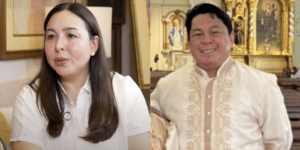The country’s foreign exchange reserves increased further to a new all-time high of $81.88 billion at the end of September as the central bank kept buying additional dollars from the market to prevent what could have been a sharper rise of the peso.
In a report released Friday, the Bangko Sentral ng Pilipinas said the latest gross international reserves (GIR) were enough to cover for 11.8 months’ worth of the country’s imports and 6.5 times the combined debts to foreign creditors of private and government entities in the Philippines.
The BSP admitted that its foreign exchange operations, under which it trades currencies in a bid to prevent sharp and sudden fluctuations in the exchange rate, caused the GIR to shoot up. Other factors were income generated from the investments of the BSP in foreign currency-denominated securities and the increase in gold prices. About $11 billion of the reserves are gold holdings.
The Philippines and other emerging markets are attracting foreign “hot money” because of the crisis in the Europe and the anemic performance of the US economy. Problems confronting the advanced economies are driving portfolio funds to better-performing economies in Asia.
The BSP said it did not have a bias in favor of a strong or weak peso, but it would exercise flexibility to trade currencies in the market to prevent extreme volatility in the exchange rate that was disruptive to businesses and the economy.
The peso strengthened to an average 41.749 against the dollar in September from 42.045 the previous month. Without the central bank’s participation in the foreign exchange market, traders said the peso could have been even stronger.
Currency appreciation is frowned upon by exporters and households dependent on remittances from overseas-based Filipinos. A strengthening of the peso makes Philippine-made goods more expensive in dollar terms and thus potentially less competitive. It also reduces the peso value of dollar remittances.
As the BSP accumulates more foreign-exchange reserves for the country, some economists claim the reserves have already hit an excessive level. Tetangco, however, said nobody could really say when the amount of foreign exchange reserves has become too much.



